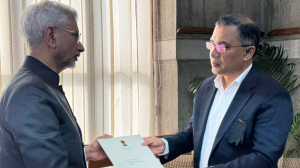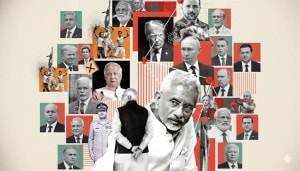Modest but promising
The NCTC,as conceived,strikes the right balance. It ought to optimise response and resources
If the 26/11 Mumbai terror attack was a paradigm shift for Indias approach to terrorism,three years and a month later,the stage has been set for the National Counter-Terrorism Centre NCTC,with the high-level committee headed by National Security Adviser Shivshankar Menon reconciling differences and drawing up the blueprint for the Cabinet Committee on Security. Those differences were also a larger debate on how the NCTC should be conceived and constituted,and what its mandate would be. The concerns were twofold: first,a replication several times of existing institutions and functions would be a waste. Second,an agency with sweeping powers to override state governments and operate unilaterally might actually end up in more bottlenecks,information chokes and logistical blunders than one adhering to the federal structure of the Indian state.
Thats why,the unfolding design of the NCTC is a welcome sight. It has been conceived within the existing framework,as an executive body. While this spares the Union government the trouble of introducing another legislation as in the case of the National Investigation Agency it also precludes an unnecessary tussle between the Centre and states,since states would have had to cede authority through such a bill. The NCTC,instead,will integrate and coordinate with the nodal points in the state anti-terror cells. Besides,the National Intelligence Grid Natgrid will be placed under it. The Natgrid itself has ultimately been conceived not as a separate and duplicating intelligence-gathering agency but a tool or technical solution to provide uninterrupted access to data to other intelligence and investigative agencies.
The argument may still be made that without enforcement powers and forces to pre-empt,contain and respond to any terror strike anywhere,the NCTC would be toothless. However,undermining the countrys federal structure would be injudicious and such an NCTC would be a waste. Investigative and enforcement bodies exist at both the Centre and in the states. The challenge is to ease intelligence-gathering and -sharing as well as to integrate and coordinate their operations. That way,response to terror can be optimised without straining resources or relations. The NCTC,in this conception,appears to strike that right balance.
- 01
- 02
- 03
- 04
- 05































